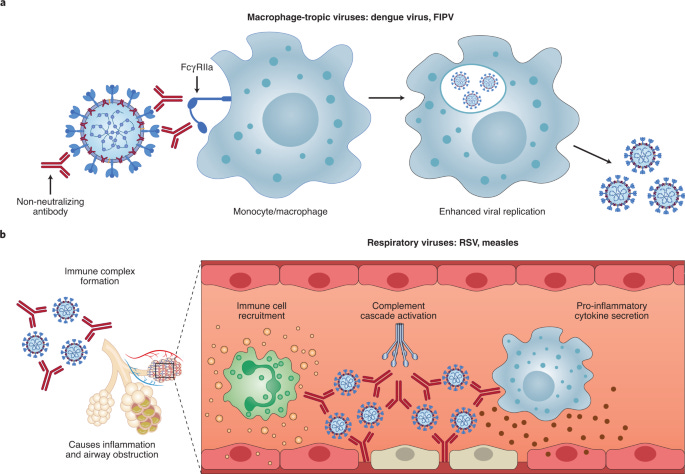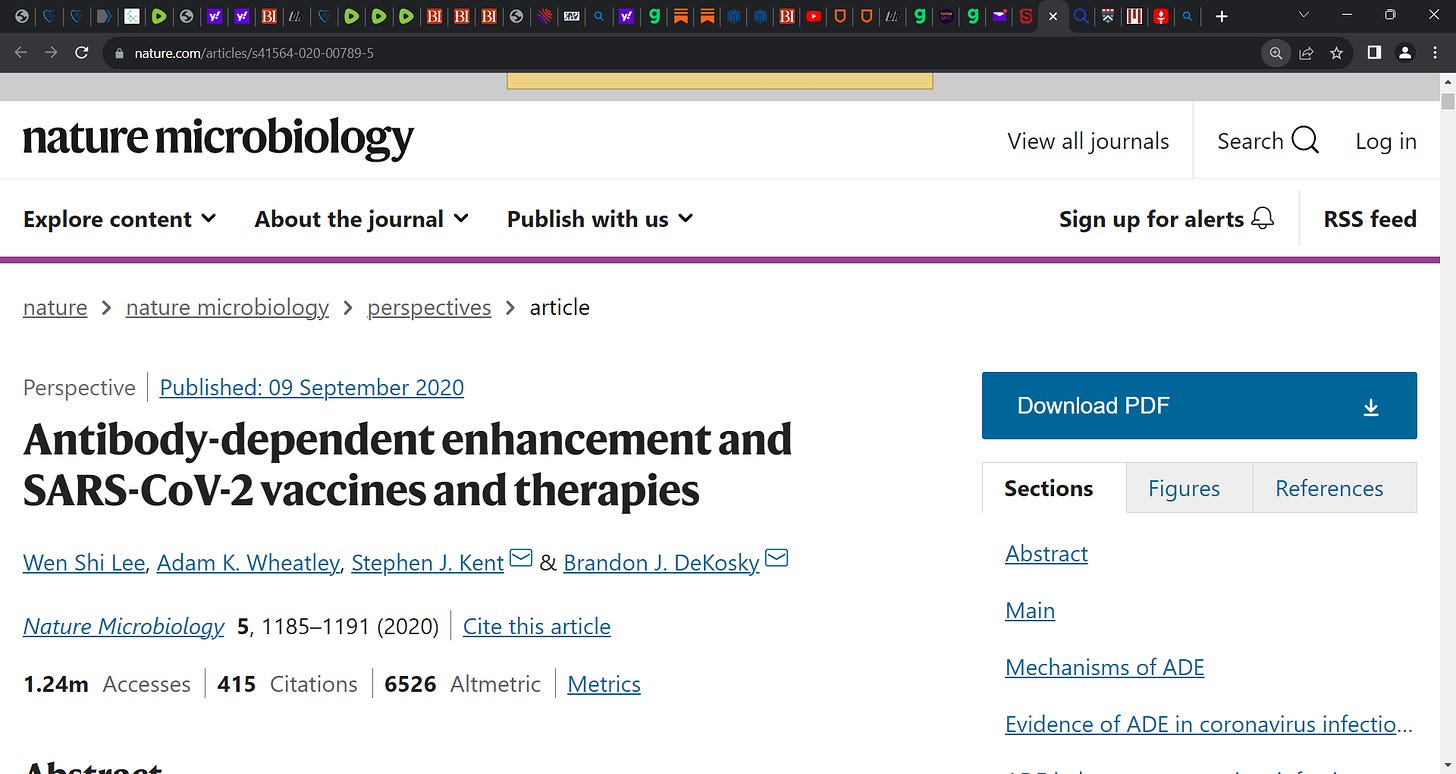Antibody-dependent enhancement of infection (ADEI) can occur when non-neutralizing antibodies or antibodies at sub-neutralizing levels bind to viral antigens without blocking or clearing infection;
by Paul Alexander
this was and remains a serious issue when using these sub-optimal non-sterilizing, non-neutralizing COVID mRNA technology vaccines; ADEI can exacerbate severity of COVID
Antibody-dependent enhancement and SARS-CoV-2 vaccines and therapies
One potential hurdle for antibody-based vaccines and therapeutics is the risk of exacerbating COVID-19 severity via antibody-dependent enhancement (ADE). ADE can increase the severity of multiple viral infections, including other respiratory viruses such as respiratory syncytial virus (RSV)9,10 and measles11,12. ADE in respiratory infections is included in a broader category named enhanced respiratory disease (ERD), which also includes non-antibody-based mechanisms such as cytokine cascades and cell-mediated immunopathology (Box 1). ADE caused by enhanced viral replication has been observed for other viruses that infect macrophages, including dengue virus13,14 and feline infectious peritonitis virus (FIPV)15. Furthermore, ADE and ERD has been reported for SARS-CoV and MERS-CoV both in vitro and in vivo.’
‘ADE has been documented to occur through two distinct mechanisms in viral infections: by enhanced antibody-mediated virus uptake into Fc gamma receptor IIa (FcγRIIa)-expressing phagocytic cells leading to increased viral infection and replication, or by excessive antibody Fc-mediated effector functions or immune complex formation causing enhanced inflammation and immunopathology (Fig. 1, Box 1).’
‘Enhanced disease and immunopathology are caused by excessive Fc-mediated effector functions and immune complex formation in an antibody-dependent manner. The antibodies associated with enhanced disease are often non-neutralizing. ADE of this type is usually examined in vivo by detecting exacerbated disease symptoms, including immunopathology and inflammatory markers, and is most clearly associated with respiratory viral infections. RSV and measles are well-documented examples of ADE caused by enhanced immune activation.’
a, For macrophage-tropic viruses such as dengue virus and FIPV, non-neutralizing or sub-neutralizing antibodies cause increased viral infection of monocytes or macrophages via FcγRIIa-mediated endocytosis, resulting in more severe disease. b, For non-macrophage-tropic respiratory viruses such as RSV and measles, non-neutralizing antibodies can form immune complexes with viral antigens inside airway tissues, resulting in the secretion of pro-inflammatory cytokines, immune cell recruitment and activation of the complement cascade within lung tissue. The ensuing inflammation can lead to airway obstruction and can cause acute respiratory distress syndrome in severe cases. COVID-19 immunopathology studies are still ongoing and the latest available data suggest that human macrophage infection by SARS-CoV-2 is unproductive. Existing evidence suggests that immune complex formation, complement deposition and local immune activation present the most likely ADE mechanisms in COVID-19 immunopathology. Figure created using BioRender.com.
https://www.nature.com/articles/s41564-020-00789-5


